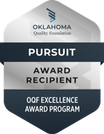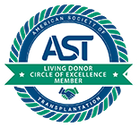How Organ Donation Works
STEP 1 |
PATIENT ASSESSMENT Death can occur in one of two ways: (1) cardiac death, when the heart is no longer able to beat on its own, and (2) brain death, which is the irreversible loss of function of the brain. When the family decides to remove mechanical support, donation discussions begin. |
STEP 2 |
HOSPITAL CALLS LIFESHARE The Hospital calls LifeShare within 60 minutes for patients who are vented and meet hospital clinical triggers. |
STEP 3 |
FAMILY DISCUSSION LifeShare staff discusses the opportunity for donation with the family and hospital care team. |
STEP 4 |
MEDICAL EVALUATION A donor is medically evaluated. |
STEP 5 |
MATCHING Organ allocation takes place and patient is taken to operating room for organ procurement. |
STEP 6 |
SURGICAL RECOVERY, PRESERVATION & TRANSPORT Surgical Recovery takes place – and organs are either placed on pumps or packaged and delivered to a transplant center. |
STEP 7 |
AFTERCARE LifeShare provides aftercare and grief support to donor families. |
Testimonials
|
“My transplant has allowed me to live a full life with little to no restrictions and to do the things I have always desired.”
– Talitha Brown, Liver Recipient |
Donna died from injuries she sustained while trying to save her son from their burning apartment. After all measures had been exhausted, her family was approached about Donna becoming an organ donor – and through donation, Donna saved six lives.
- Donna Burell, Donor Hero |
FAQs
Does donation affect Funeral Plans?
LifeShare works with every Funeral Home in the state to ensure that funeral arrangements of your choice are possible, including a viewing. Through the entire donation process the body is treated with care and respect. Following donation, funeral arrangements can continue as planned.
Does registering as a donor change my patient care?
Your life always comes first. Doctors work hard to save every patient’s life, but sometimes there is a complete and irreversible loss of brain function. The patient is declared clinically and legally dead. Only then is donation an option.
Why is it important for people of every community to donate?
Although donation and transplantation can take place successfully between individuals from different racial or ethnic groups, transplant success is often better when organs are matched between people of the same racial or ethnic background.
People of African American/Black, Asian/Pacific Islander, Hispanic/Latino, American Indian/Alaska Native and multiracial descent currently make up nearly 58% of individuals on the national organ transplant waiting list. These communities are in great need of more organ and tissue donors.
Other FAQ
LifeShare works with every Funeral Home in the state to ensure that funeral arrangements of your choice are possible, including a viewing. Through the entire donation process the body is treated with care and respect. Following donation, funeral arrangements can continue as planned.
Does registering as a donor change my patient care?
Your life always comes first. Doctors work hard to save every patient’s life, but sometimes there is a complete and irreversible loss of brain function. The patient is declared clinically and legally dead. Only then is donation an option.
Why is it important for people of every community to donate?
Although donation and transplantation can take place successfully between individuals from different racial or ethnic groups, transplant success is often better when organs are matched between people of the same racial or ethnic background.
People of African American/Black, Asian/Pacific Islander, Hispanic/Latino, American Indian/Alaska Native and multiracial descent currently make up nearly 58% of individuals on the national organ transplant waiting list. These communities are in great need of more organ and tissue donors.
Other FAQ













